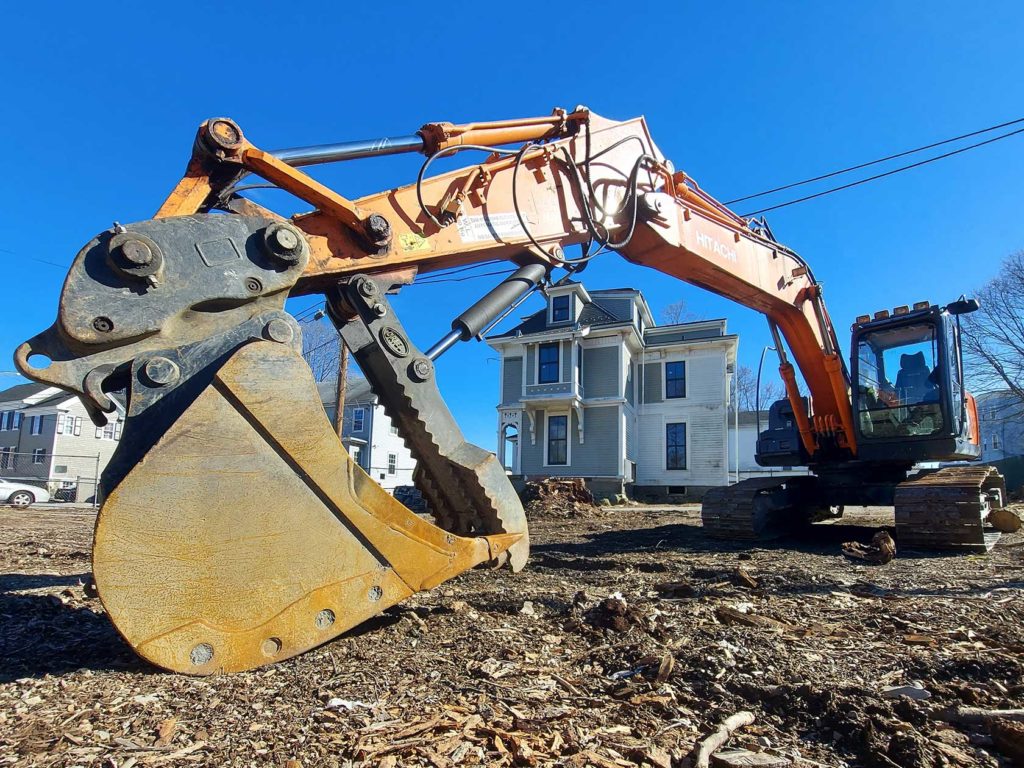Wu: production alone won’t bring down rents
City seeking more resources for affordable housing production

During his first year in office, Mayor Martin Walsh outlined ambitious housing production goals in an attempt to relieve pressure on rents and lower housing costs in Boston. By 2018, housing production was moving at a rapid pace and the city set its sights on a total of 69,000 new units by 2030.
Yet this year, Boston’s rental market is the third highest in the nation, behind New York and San Francisco as professionals flock to the growing biotech sector and to other high-paying jobs that have proliferated in the city over the last eight years.
As Mayor Michelle Wu’s administration takes shape, she is grappling with the demands of developers seeking to charge ahead with multi-million-dollar projects and voters who in polls overwhelmingly supported rent control. During a roundtable discussion with news media Monday, Wu said she doesn’t think housing production alone can bring down rents and home prices, noting that investors from outside the U.S. have bought luxury units without occupying them.
“What we’ve seen in the actual experience of our city, is that there are multiple markets for housing, and it doesn’t just trickle down,” she said. “It’s not a closed market, where creating more of this kind of housing ends up trickling directly down into more availability and a greater flexibility and liquidity in other parts of the market.”
Wu said that before her administration sets a new goal for housing production, members of her team are looking at ways to boost affordability, including using federal American Rescue Plan Act funding and city-owned land to aid in the production of affordable units
“We’ll be releasing our citywide audit of our audit of city owned properties and which pieces can be connected to the potential for city owned land, helping to support affordable housing and supportive housing and other needs,” she said.
Wu said she has also convened a rent stabilization working group to examine approaches to regulating rent that have been used in other cities and strategize a solution for Boston. Wu ran with rent stabilization as part of her platform during the 2021 election. Wu hopes to advance a home rule petition on rent stabilization to the Legislature.
Housing has been a top issue for Boston voters, with a majority indicating in a 2021 MassInc. poll that they can’t afford to buy a home in the neighborhood in which they live. In recent decades, many longtime Black and Latino Boston residents have moved to less expensive housing markets such as Brockton, the city in Massachusetts with the highest number of Black and Latino home purchases.
Wu said that just a few years after moving into her home in Roslindale, prices in the neighborhood rose to a point where she and her husband would not have been able to afford to buy there. She said the city’s affordability crisis is affecting many people she knows.
“There’s folks who I see at events who are active and taking leadership on issues who can no longer afford to live in our city and it is it’s incredibly disruptive to the fabric of our community that the barriers to being able to live in Boston keep going up in terms of housing costs,” she said.
Wu, who is hiring a director of planning for the city, intends to effectively dismantle the Boston Planning and Development Agency, separating out its planning and development functions. She says that change will enable better planning and effectively reverse the current dynamic where developers propose projects — such as the proliferation of lab space in Boston — that effectively drive development in the city.
“The ultimate idea is that we should be, like many other cities, seeking community-based feedback to be able to define a master plan that’s a vision for the city for the next few years, and then build and permit according to that, as opposed to, on a case by case basis, reacting to what’s put in front of us and then seeing the permissions stacking up one after the other based on happenstance in some cases,” Wu said.
As part of her reform of the planning process, Wu says she intends to end the Boston Planning and Development Agency’s urban renewal designations, which cover parts of Roxbury, the South End, downtown Boston and part of Charlestown.
The designations, she says, are an artifact of past planning processes that enabled the city to take land by eminent domain. The designation allowed for the demolition of the West End, the New York Streets areas and other controversial initiatives aimed at neighborhoods the city designated slums. Wu said the designations are outdated and that there are more inclusive ways to move redevelopment projects forward.
“We are one of the few cities in the country that still carries forward a legacy that has been tied to displacement and the removal of communities in the past,” she said. “If we are to reach our goals on housing affordability and climate resiliency and transportation access and building healthy communities, we need communities to be fully engaged in our processes and urban renewal has always represented an extraordinary tilt of power towards internal decision makers.”







